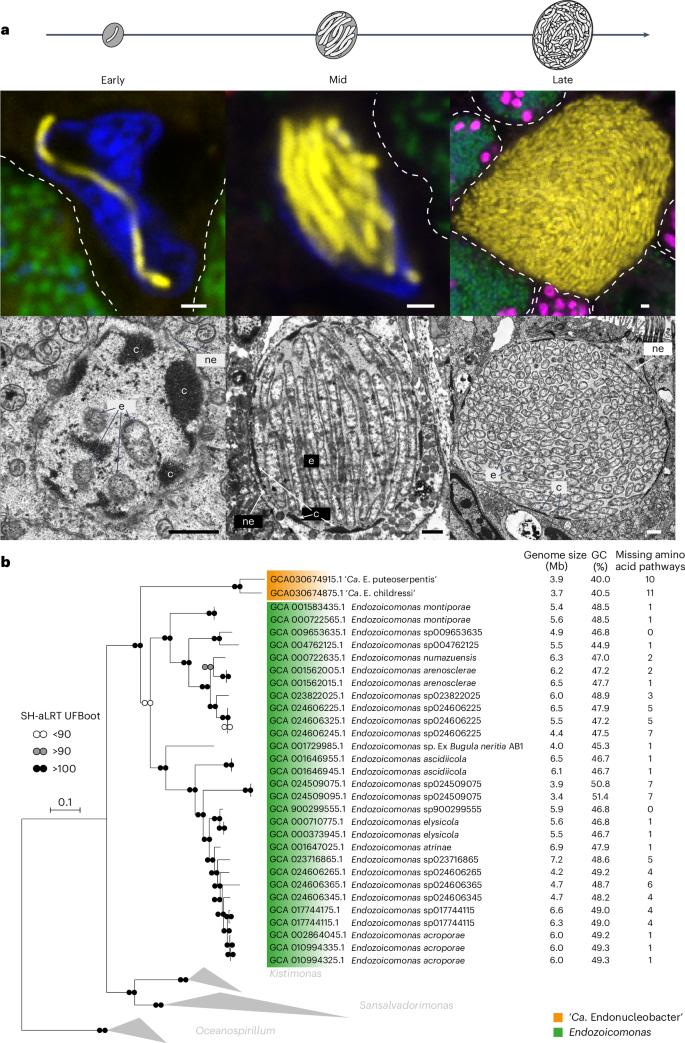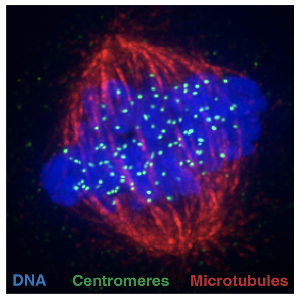2024-09-06 マックス・プランク研究所
<関連情報>
- https://www.mpg.de/23434715/parasites-in-the-nucleus
- https://www.nature.com/articles/s41564-024-01808-5
深海性ムール貝の核内寄生細菌が宿主から獲得したアポトーシス阻害物質を発現している An intranuclear bacterial parasite of deep-sea mussels expresses apoptosis inhibitors acquired from its host
Miguel Ángel González Porras,Adrien Assié,Målin Tietjen,Marlene Violette,Manuel Kleiner,Harald Gruber-Vodicka,Nicole Dubilier & Nikolaus Leisch
Nature Microbiology Published:06 September 2024
DOI:https://doi.org/10.1038/s41564-024-01808-5

Abstract
A limited number of bacteria are able to colonize the nuclei of eukaryotes. ‘Candidatus Endonucleobacter’ infects the nuclei of deep-sea mussels, where it replicates to ≥80,000 bacteria per nucleus and causes nuclei to swell to 50 times their original size. How these parasites are able to replicate and avoid apoptosis is not known. Dual RNA-sequencing transcriptomes of infected nuclei isolated using laser-capture microdissection revealed that ‘Candidatus Endonucleobacter’ does not obtain most of its nutrition from nuclear DNA or RNA. Instead, ‘Candidatus Endonucleobacter’ upregulates genes for importing and digesting sugars, lipids, amino acids and possibly mucin from its host. It likely prevents apoptosis of host cells by upregulating 7–13 inhibitors of apoptosis, proteins not previously seen in bacteria. Comparative phylogenetic analyses revealed that ‘Ca. Endonucleobacter’ acquired inhibitors of apoptosis through horizontal gene transfer from their hosts. Horizontal gene transfer from eukaryotes to bacteria is assumed to be rare, but may be more common than currently recognized.

